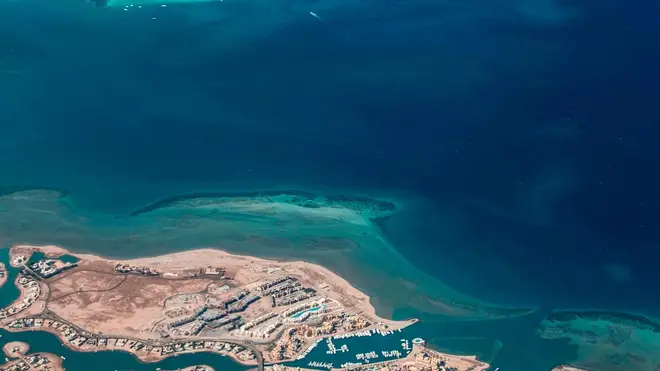
Natasha Devon 6pm - 9pm
3 July 2022, 10:02 | Updated: 3 July 2022, 16:59

A second woman has been killed in a shark attack off Egypt's red sea coast.
The body of a Romanian tourist in her late 40s was found near the Hurghada resort just hours after a 68-year-old Austrian woman was savaged to death by a shark less than 600m away.
Egyptian authorities had already closed off a stretch of the coastline after the first victim was taken to hospital having lost an arm and a leg to the attack.
She was barely alive when she was taken to the private Nile Hospital on Friday, an Egyptian health official said, adding that attempts by medical staff to resuscitate her failed.
According to an internal document from the office of the governor of the Red Sea province, shared with The Associated Press, authorities were to close off the area for three days, banning all "sea activities" including diving, snorkelling, wind surfing and kite sailing.
Fishing boats were also banned from the waters off Hurghada.
The governor ordered the closure.
A video circulated online purported to show the attack on the woman by a Mako shark relatively close to the shore, seen from a nearby pier.
In the video, the water around the woman turns red from blood as bystanders on the pier throw a flotation device towards her.
It is unclear how she was brought to shore.
Shark attacks have been relatively rare in Egypt's Red Sea coastal region in recent years.
In 2020, a young Ukrainian boy lost an arm and an Egyptian tour guide a leg in an attack.
In 2010, a spate of attacks killed one European tourist and maimed several others off Sharm el-Sheikh on the Sinai Peninsula, across the Red Sea from Hurghada.
Egypt's Red Sea resorts, including Hurghada and Sharm el-Sheikh, are some of the country's major beach destinations and are popular with European tourists.
Divers are drawn by the steep drop-offs of coral reefs just offshore that offer a rich and colourful sea life.
Authorities have in recent years sought to revive the vital tourism sector, battered by years of instability and, more recently, the coronavirus pandemic and the war in Ukraine.